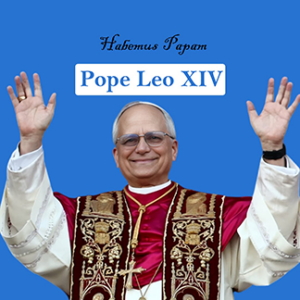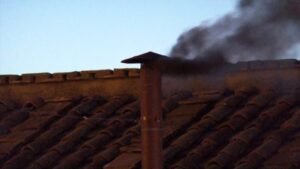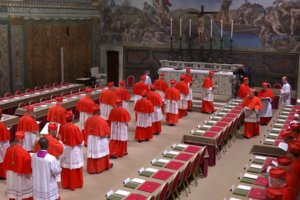CUEA: Conference on Pope Francis’ 10th Anniversary Reveals a Merciful and Firm Pontiff
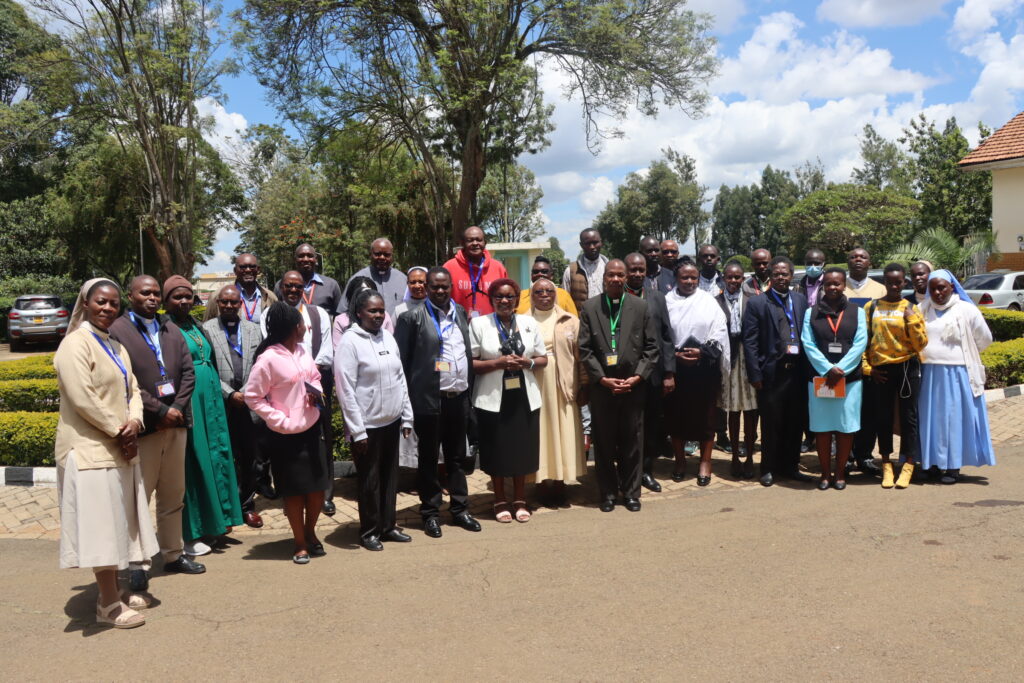
Participants at the 2023 International writers Conference, Gaba , Eldoret
Sr. Jecinter Antoinette Okoth, FSSA
The International Annual Writers Conference that analyzed Pope Francis’ ten years of Pontificate disclosed that the Holy Father is compassionate and kind but at the same time firm in his decisions and ways of leading the Church.
“When I reflect on the apostolate of Pope Francis for the past ten years, he is both a kind and stern person. These two terms may seem contradictory but to me, they form who Pope Francis is,” Fr. Fredrick Wanjala the keynote speaker said during the opening of the conference held at the Catholic University of Eastern Africa (CUEA) Gaba Campus in Eldoret, Kenya.
Describing the Holy Father as one who was “brewed in a Latin American pot,” the cleric who teaches dogmatic theology at CUEA’s main campus in Nairobi revealed that to understand the apostolate of the theology of the Holy Father, there is a need to understand his background, and what nurtured him since “The environment shapes who we are.”
According to the Uganda cleric who has served in Kenya for slightly over two decades, the firmness of the Pope might have developed tracing back to the time when Latin American revelation theology came up to restore the socioeconomic environment of oppression.
Looking at the merciful nature of the Holy Father, Fr. Wanjala highlighted various instances including his request for the people to pray for him when he was just elected Head of the Catholic Church saying, “It was a rare gesture of a Pope to request prayers from the people since we are used to the Pope blessing us. that was a sign of humility, he broke the tradition.”
He added, “We saw him choose the name Francis who in the 13th century was known to be a poor man to the extreme. Again, we see him as a risk-taker in the apostolate. He has elevated so many people who are not ordained.”
In his opening remarks for the three-day conference from 27th-29th September, the director for CUEA AMECEA Gaba campus, Eldoret Fr. Nicholaus Segeja shared that the Holy Father apostolate has been unique in the history of the papacy.
“The Holy Father has endeared himself not just as a Catholic leader, but as a leader of the world. Chief among these reasons has been his approach to issues affecting all of God’s creatures,” the director said and stressed that “Pope Francis speaks candidly and is never afraid to confront agents of oppressive social and political systems.”
He noted that the issues with which the pontiff has concerned himself in the 10-year Apostolate “cut across all aspects of human life, from the spiritual, physiological, psychological, cultural, and technological hence the reason AMECEA Gaba Publications-CUEA Press seen it fit to organize the Conference around the Celebration of a Decade of Pope Francis’ Apostolate.”
Expounding on why the theme was identified as: “Critical Reflections on the 10th Anniversary of Pope Francis’ Pontificate,” the convener of the conference Fr. Dr. Jordan Nyenyembe, the coordinator for AMECEA Gaba publications underscored the need to reflect on the many blessings the Church has realized in the person of Pope Francis since his election as the chair of St. Peter.
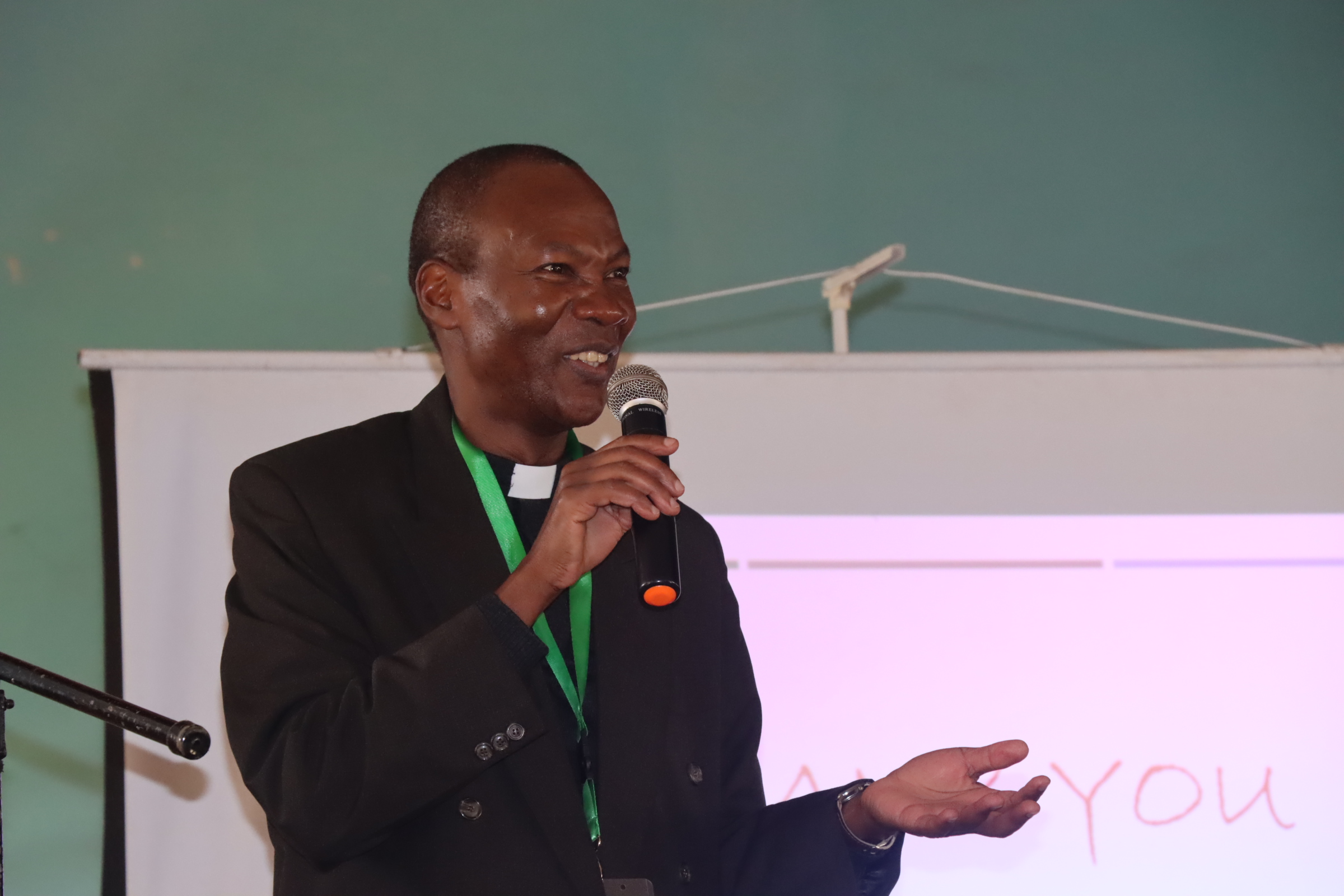
The various sub-themes presented by scholars during the annual conference include the election of Pope Francis to Papacy, Pastoral methodology of Pope Francis, Major themes of Pope Francis’ homilies and letters, Pope Francis and the Catholic theology, Papacy global leadership and geopolitics, climate change and universal implications of the encyclical letter Laudato Si.’
Other thematic areas of interest in the Pope’s Pontificate included migration and displacement in Pope Francis’ teachings, Papal exhortation on human suffering and evangelization in Africa, Papacy, safeguarding and protection of children and vulnerable persons, Pope Francis approach to integral human development, practical implication of synodality on evangelization in Africa, ecumenism and interreligious dialogue in the era of Pope Francis, pontifical teaching on the youth and on the Pope’s teachings on the laity.
One of the presenters who focused on Pope Francis’ encyclical Laudato Si’ highlighted that Pope Francis emphasized the interconnectedness of all aspects of life, including the environment, society, and the economy calling for an “integral ecology” that recognizes the interdependence between human beings and the natural world.
“The encyclical highlights the grave consequences of human-induced climate change and global warming, and at the same time stresses the need for collective efforts to reduce greenhouse gas emissions and mitigate their impact on vulnerable communities,” Fr. Paul Mung’athia Igweta, the coordinator of AMECEA Integral Human Development said.
He noted that the Pope laments the depletion of natural resources, pollution, and loss of biodiversity, but emphasizes the moral responsibility to care for creation and protect the Earth for present and future generations.
